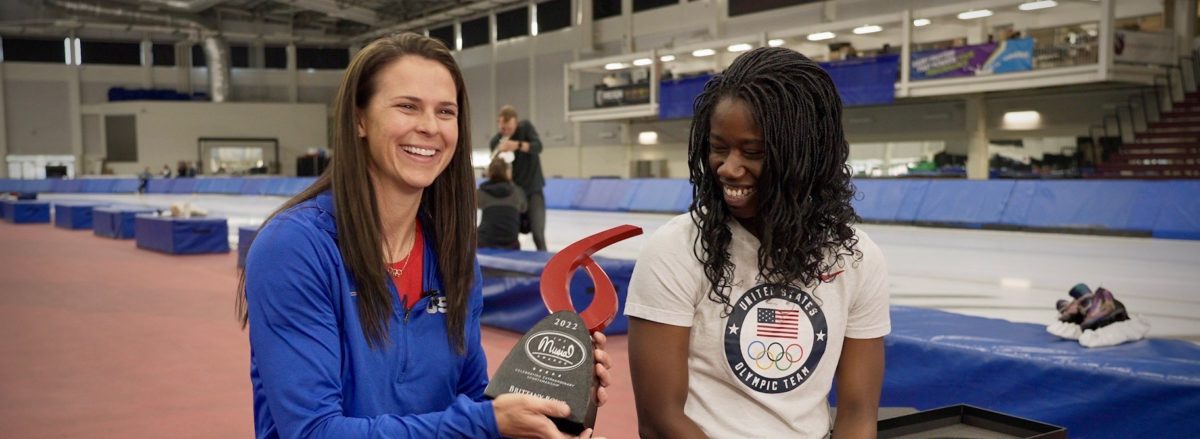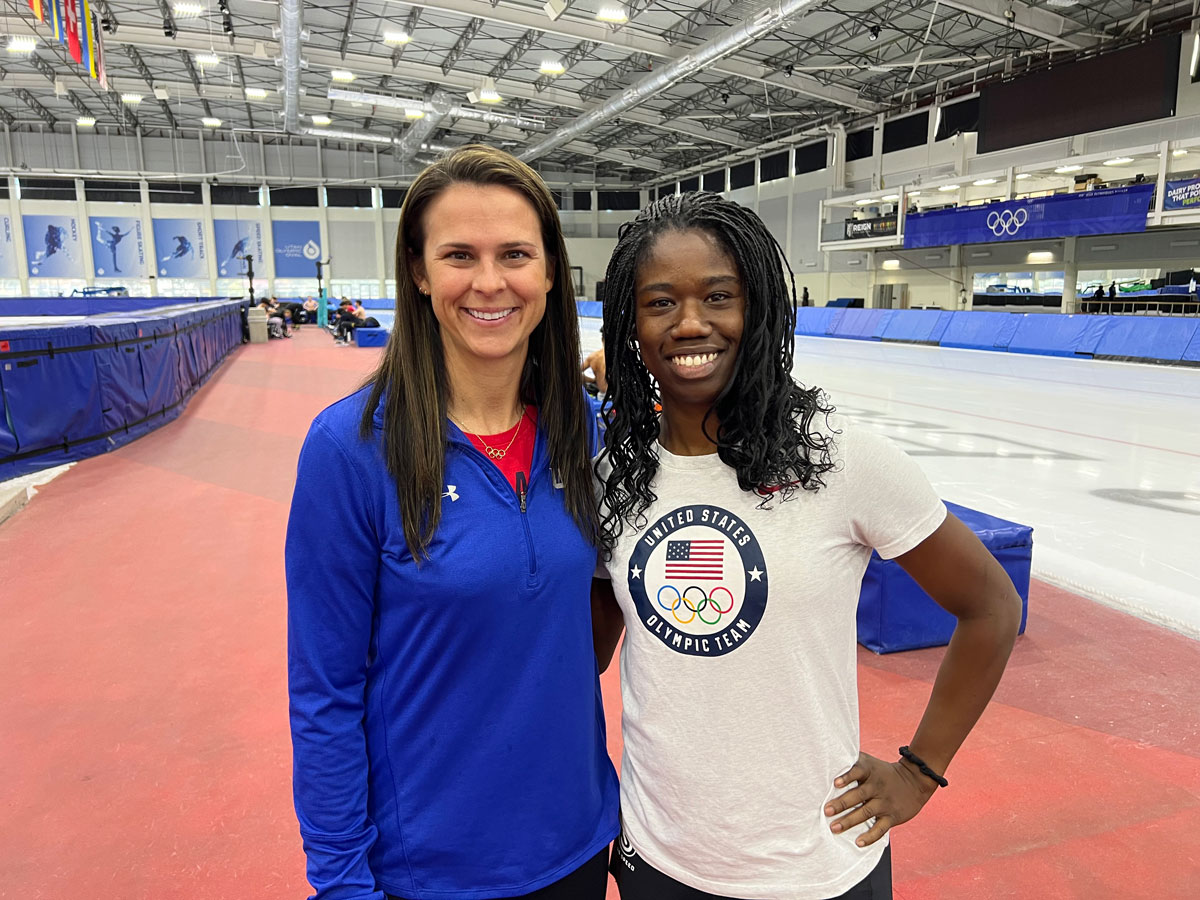
Brittany Bowe
 The most intriguing twist in Erin Jackson’s rise to supremacy in speedskating might not be that she’s from Ocala, Florida, a city devoid of naturally occurring ice. Instead, it might be that another Olympic speedskater from the same hometown, Brittany Bowe, kept Erin’s Olympic dreams alive through an unselfish act that earned a Musial Award.
The most intriguing twist in Erin Jackson’s rise to supremacy in speedskating might not be that she’s from Ocala, Florida, a city devoid of naturally occurring ice. Instead, it might be that another Olympic speedskater from the same hometown, Brittany Bowe, kept Erin’s Olympic dreams alive through an unselfish act that earned a Musial Award.
Separated in age by almost five years, the two started as inline skaters, along with yet another Olympian, Joey Mantia, who have followed one another’s transitions to the large, frozen oval.
“We have a photo of Erin standing between myself and Joey,” Brittany told the Minneapolis Star Tribune, “and she comes up to maybe our chests. We go back very far.”
Even after the two women could stand eye-to-eye, Erin looked up to Brittany. “She’s always been there for me, helping me out, even when I was the new kid back in Ocala,” Erin says, “an awesome mentor and an amazing friend if I ever need advice.”
Before the Olympic Trials this year, Brittany’s career was well-established as a two-time Olympian; Erin was an international star on the rise. She entered the Trials as a favorite in the 500 meters, a distance at which the U.S. women hadn’t won an Olympic medal in 28 years. Early last season, Erin became the first Black woman to win a World Cup event, won four of eight 500-meter races on the World Cup circuit and reached the podium two other times.
But Erin’s ascendance seemed destined to be cut short when she slipped and finished third at the Trials, from which the top two qualified for the Olympics. She was left with no recourse. U.S. Speedskating rules allow for a reskate in the case of a mechanical failure or fall − but not a mere slip. If she had been injured or ill, the governing body could have made an exception for her. Thus, the medal favorite appeared to be on the outside looking in − unless one of the qualifiers gave up her spot.
Brittany, who finished first, didn’t hesitate.
“In my heart, there was never a question. She has earned her spot,” Brittany says, downplaying her generosity. “This is bigger than just me. This is the Olympic Games, and it’s about Team USA and giving everybody the opportunity to showcase what they got.”
Despite her humility – or perhaps because of it − Brittany’s unselfish gesture was hard to ignore. Her U.S. teammates named Brittany the country’s flagbearer for the opening ceremonies in Beijing.
Days later, Erin won gold in the 500 meters, becoming the first Black woman to medal in the sport, the first U.S. speedskating Olympic gold medalist since Shani Davis won the men’s 1,000 in 2010 and the first U.S. woman to win an individual medal in the sport since 2002.
“Words cannot explain how proud I am of her,” Brittany says of Erin’s achievements. “I knew she had the chance to do something really special, and she just showed the world why she deserved to be here.”
The sacrifice also paid off for Brittany. She ended up competing in the 500 because of a late opening in the field and finished 16th. She finished 14th in the 1,500, and joined Erin as an individual medalist, earning bronze in the 1,000.
“Hopefully, this has an effect,” Erin told reporters in Beijing, adding that Brittany “made a really big sacrifice for me. I’ll be grateful to her forever.”